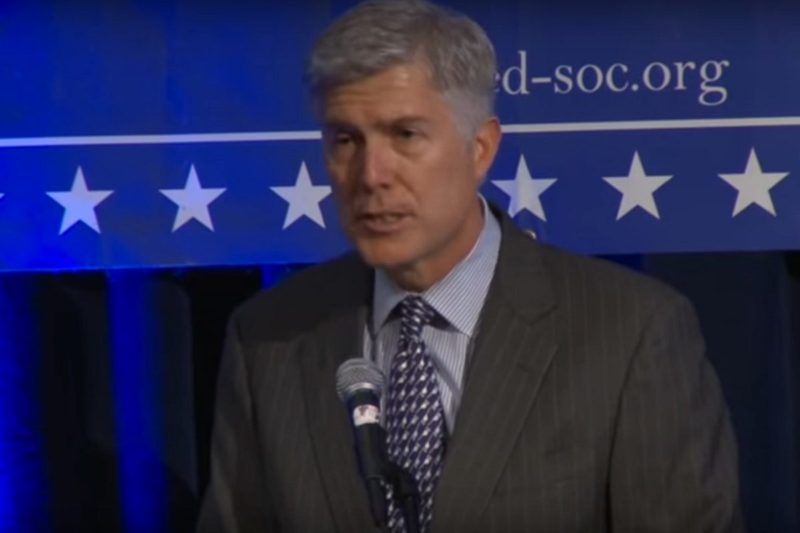Trump Nominates Birth Control Benefit Foe Neil Gorsuch to Supreme Court
Gorsuch’s decision was largely adopted by the conservative Roberts Court majority in its 2014 decision ruling that secular, for-profit companies like Hobby Lobby could make religious objections to complying with certain regulations.

President Trump on Tuesday nominated federal appeals court Judge Neil Gorsuch to the U.S. Supreme Court, looking to fill the seat left vacant for almost a year by the death of Justice Antonin Scalia and Republican obstruction of President Barack Obama’s Supreme Court nominee, Merrick Garland.
Gorsuch was appointed to the U.S. Court of Appeals for the Tenth Circuit in 2006 by President George W. Bush and is well-liked by conservative jurists. A graduate of Harvard Law School, Gorsuch clerked for both Supreme Court justices Byron White and Anthony Kennedy before joining the Bush administration’s U.S. Department of Justice and then the federal bench.
Gorsuch, as a member of the Tenth Circuit Court of Appeals, penned important decisions vastly expanding the rights of employers to shield themselves from complying with certain regulations, most notably the Affordable Care Act’s birth control benefit. In Hobby Lobby v. Sebelius, Gorsuch, as part of the full panel of the court, wrote a concurring opinion in favor of Hobby Lobby’s argument that the birth control benefit violated the Religious Freedom Restoration Act.
Gorsuch’s decision was largely adopted by the conservative Roberts Court majority in its 2014 decision ruling secular for-profit companies like Hobby Lobby could make religious objections to complying with certain regulations.
Gorsuch wrote a dissenting opinion in Little Sisters of the Poor v. Burwell, a case challenging the accommodation process to the birth control benefit. Gorsuch argued that courts should not question the sincerity of the beliefs of organizations launching religious objections to the ACA, a position that was also largely adopted by conservatives on the Supreme Court when the Little Sisters’ case landed before the Roberts Court.
Dr. Daniel Grossman, director of Advancing New Standards In Reproductive Health, said he was concerned that Trump’s Supreme Court nominee could be part of a conservative majority that criminalizes abortion care—a long-held goal of the anti-choice movement.
“President Trump’s vow to appoint Supreme Court justices who will overturn Roe v. Wade is troubling on many levels. As a physician and public health expert, I am concerned on a very basic level because it is simply bad medicine,” Grossman said. “Abortion is health care, and it should be health professionals who determine what procedures and services are the standard of care—not judges and politicians. Any attempt to stack the Court to dismantle Roe v. Wade or restrict access to abortion is political maneuvering and bad for women’s health.”
Gorsuch’s nomination now moves to the Senate Judiciary Committee for hearings and consideration.
